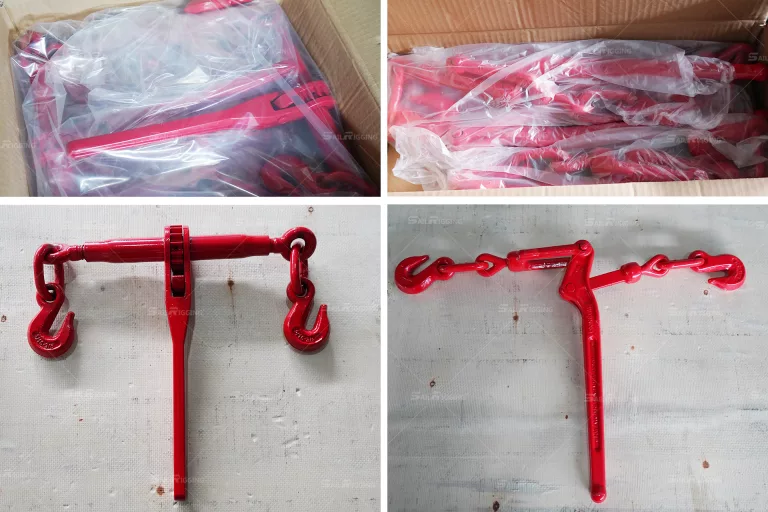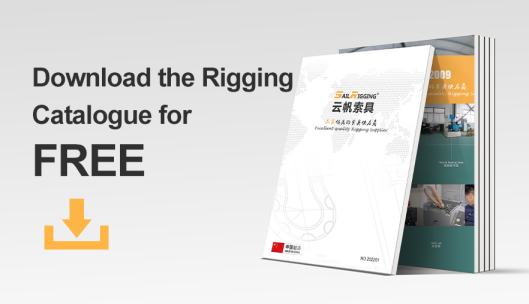When it comes to securing heavy loads for transport, selecting the right load binder is crucial for safety and efficiency. Load binders are essential tools used to tighten chains and secure cargo on trailers. The two main types of load binders are ratchet load binders and lever load binders. Understanding the differences between these types and knowing how to choose the right one for your needs can make a significant difference in your load securing process.
Ratchet load binders use a ratcheting mechanism to tighten and secure the load. They offer several advantages:
Precision and Control: Ratchet binders allow for incremental adjustments, providing better control over tension and ensuring a more secure hold.
Safety: The ratcheting mechanism requires less physical effort, reducing the risk of strain or injury. It also minimizes the chance of the binder snapping back unexpectedly.
Ease of Use: Ratchet binders can be easily operated by a single person, making them convenient for a wide range of applications.
Lever load binders, also known as snap binders, use a lever mechanism to tighten and secure the load. They have their own set of advantages:
Speed: Lever binders can be faster to apply and remove, making them ideal for situations where time is a critical factor.
Simplicity: The straightforward design of lever binders makes them easy to use and maintain.
Cost: Typically, lever binders are less expensive than ratchet binders, which can be a consideration for budget-conscious operations.
Factors to Consider When Choosing a Load Binder
When deciding between a ratchet load binder and a lever load binder, consider the following factors:
- Load Size and Weight
Heavy Loads: For larger, heavier loads, a ratchet binder is often the better choice due to its ability to apply greater tension with less effort.
Lighter Loads: For smaller, lighter loads, a lever binder may be sufficient and more convenient.
- Frequency of Use
Frequent Use: If you will be securing and releasing loads frequently, the ease of use and safety of ratchet binders may be more beneficial.
Infrequent Use: For occasional use, lever binders might be more practical due to their lower cost and quicker application.
- Operator Strength and Safety
Operator Strength: Ratchet binders require less physical strength to operate, making them suitable for a wider range of users.
Safety Concerns: Consider the safety of your operators. Ratchet binders generally present less risk of injury compared to lever binders, which can snap back if not handled carefully.
- Environmental Conditions
Weather: In adverse weather conditions, the precision and control of ratchet binders can be particularly advantageous.
Terrain: For rough or uneven terrain, the secure hold provided by ratchet binders can help ensure the load remains stable.
Conclusion
Both ratchet load binders and lever load binders have their respective advantages and ideal use cases. Ratchet binders offer precision, safety, and ease of use, making them suitable for heavier loads and frequent use. Lever binders, on the other hand, provide speed, simplicity, and cost-effectiveness, making them ideal for lighter loads and occasional use.
When choosing a load binder, consider the size and weight of your load, the frequency of use, the strength and safety of your operators, and the environmental conditions you’ll be working in. By carefully evaluating these factors, you can select the right load binder to ensure your cargo is secure and your operations are efficient. If you want to know more about load binder, please get in touch with Sail Rigging right now.





